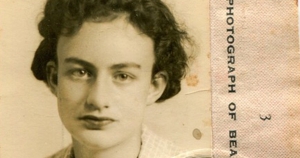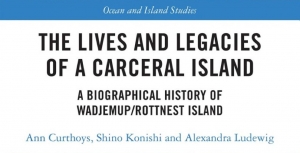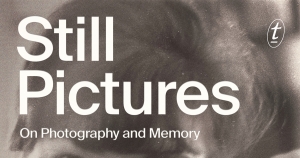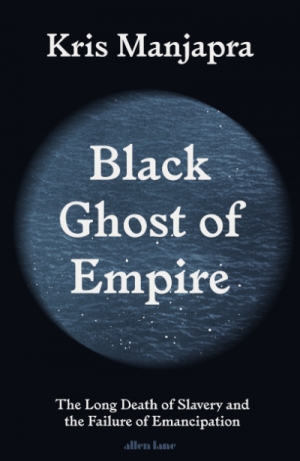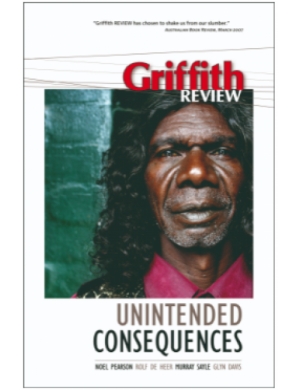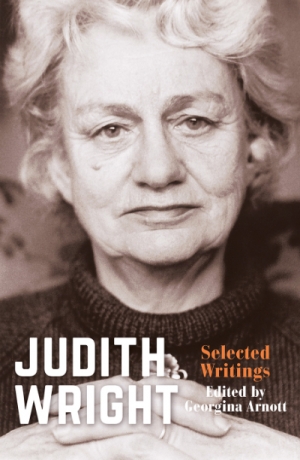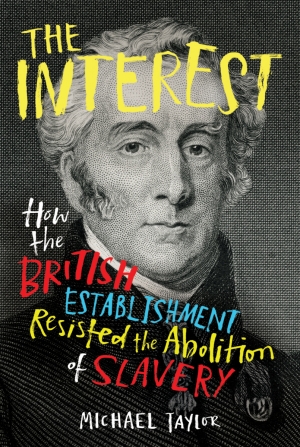Georgina Arnott
To celebrate the year’s memorable plays, films, television, music, operas, dance, and exhibitions, we invited a number of arts professionals and c ...
‘Shimmering multiple and multitude’: Keeping up with Judith Wright
A year before her death in 2000, Judith Wright’s autobiography Half a Lifetime was published. The phrase ‘female as I was…’ peppered her stories. Miles Franklin’s Sybylla Melvyn had been a childhood idol. Wright conceded that Sybylla’s use of a stockwhip to assert power might have seemed ‘a little over the odds’. Then: ‘but if you had to?’
... (read more)This week, on the ABR podcast, we feature a special conversation between author and journalist David Marr, historian Mark McKenna and ABR’s Georgina Arnott, recorded in the middle of September 2023, one month out from the Voice referendum. The subject was David Marr’s new book, Killing for Country: A family story, which takes the reader to early nineteenth-century New South Wales and follows the bloodshed of invasion as it tracks north. Mark McKenna’s review of Killing for Country is published in the October issue of ABR.
... (read more)Georgina Arnott reviews 'The Lives and Legacies of a Carceral Island: A biographical history of Wadjemup/Rottnest Island' by Ann Curthoys, Shino Konishi, and Alexandra Ludewig
Islands, as recent histories of immigration detention and quarantine show, offer unique things to human societies. Rimmed by a watery bulwark, they have more surveyable borders than do mainlands. Their status as sublands suggest that they exist outside the conventions and temporal dimensions of larger, mainland societies. What happens on an island stays on an island; at least, island prison warders and sojourners imagined this to be the case.
... (read more)Janet Malcolm knew the difference between the remembered thing and the thing itself. Her writing life and 1984 masterpiece, In the Freud Archives, explored that crevice, asking: is what really matters how we experience life, not life itself?
... (read more)Georgina Arnott reviews 'Black Ghost of Empire: The long death of slavery and the failure of emancipation' by Kris Manjapra
‘To fully understand why the shadow of slavery haunts us today, we must confront the flawed way that it ended.’ This premise guides the third book of Kris Manjapra, a Bahamian of African and Indian descent and history professor at Massachusetts’s Tufts University. As Manjapra invites us to see, the ‘voids’ in his family’s history reflect the pernicious afterlife of five hundred years of Atlantic slavery; his loss just one of its manifold legacies.
... (read more)On the fortieth anniversary of the 1967 referendum, the Weekend Australian editorial devoted considerable time to savaging the dominant 1970s model of indigenous development, most closely associated with Nugget Coombs: a ‘neo-pastoralist dream [that was] philosophically flawed, a fatal fusion of romanticism and Marxism’. Helen Hughes, in an excerpt from Lands of Shame in the same newspaper, echoes the sentiment, labelling the re-creation of remote communities ‘reverse racism’. Hughes writes: ‘a few courageous leaders are demanding an end to welfare dependence, but their voices are drowned out by articulate élites.’ Enter Noel Pearson, whom the paper’s editorial applauds, along with John Howard. The Australian also published an edited version of the fifty-page article ‘White Guilt, Victimhood and the Quest for a Radical Centre’ that appears in Griffith Review 16. ‘White Guilt’ puts flesh on Pearson’s well-known objection to welfare and his emphasis on individual indigenous ‘responsibility’. He looks to early black-American models of liberation, including those of Booker T. Washington and W.E.B. Du Bois, for inspiration. It will surprise no one to learn that Pearson favours Washington’s approach, in which ‘blacks should secure their constitutional rights through their own moral and economic advancement’, over Du Bois’s call for ‘ceaseless agitation’. Pearson firmly believes that public policy should encourage the most disadvantaged people in society to change the way they think about themselves, rather than the way the majority thinks about them. While acknowledging that racism originates at a systemic level, Pearson argues that it is a ‘terrible thing to encourage victims … to see themselves as victims’. The consciousness of Bill Cosby, he suggests, would be a good role model. Pearson draws extensively on the black American Shelby Steele, who argues that white guilt, in the form of affirmative action, for example, erodes black agency by making blacks feel helpless: ‘agency’, Steele believes, ‘is what makes us fully human.’
... (read more)Philip Mead reviews 'Judith Wright: Selected writings' edited by Georgina Arnott
Georgina Arnott’s 2016 biography The Unknown Judith Wright was an absorbing exercise in discovering the facets of Judith Wright’s early life and formative experience that were unknown, hidden, or forgotten, by biographers as well as by Wright herself. It was a revealing study of a writer who had a love-fear relationship with the projects of biography and autobiography. In the 1950s, Wright wrote loving, admiring histories of her pioneering family, but in her autobiography, Half a Lifetime, published in 1999, the year before her death, she began: ‘Autobiography is not what I want to write.’ There were good reasons for this. There were the formal challenges of life writing – the person writing is not the person written about – but also what Wright had discovered, in her archival research for her rewriting of her family history, about her Wyndham colonial ancestors’ role in Aboriginal dispossession, and violence.
... (read more)Georgina Arnott reviews 'The Interest: How the British establishment resisted the abolition of slavery' by Michael Taylor
In August 1823, Quamina Gladstone and his son Jack led an uprising in the British sugar colony of Demerara where they were held as slaves. The men believed that the British parliament had voted to abolish slavery and that this was being concealed from them. The colonists quashed the rebellion with firepower, torture, and execution. Something had happened in Britain’s parliament: the Anti-Slavery Society’s Thomas Buxton had given a speech, proposing gradual reform. Yet it would take another decade, and much political upheaval, for the British parliament to abolish slavery. Michael Taylor’s book is set during these ten long years.
... (read more)In 2007, Britain’s Royal Mint issued a £2 coin commemorating two hundred years since the Act for the Abolition of the Slave Trade, the zero in ‘1807’ appearing as if a broken link in a chain. While interrupting the notorious transatlantic trade, the Act did not end slavery itself – that was achieved, at least in parts of the British world, with further legislation in 1833 that outlawed enslavement in the British Caribbean, Mauritius, and the Cape of Good Hope. Emphasis on the dramatic, if illusionary, chain-breaking moment in some bicentenary celebrations extended a tradition of dwelling on Britain’s role in slave emancipation.
... (read more)

